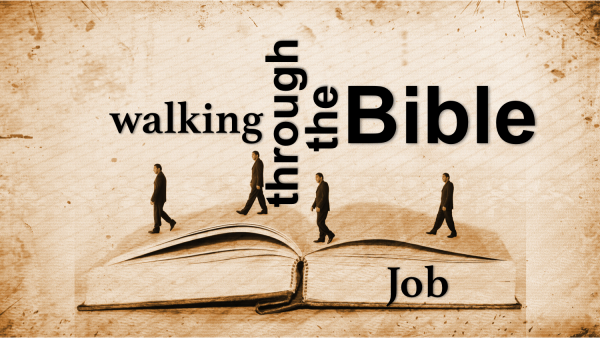Perhaps the most misunderstood aspect of this book bearing Job’s name is its placement in Bible chronology. Job is in fact the oldest book of the Bible. Though it is not placed in the Old Testament until after the historical books concluded by Esther, it in fact precedes Moses’ writings by hundreds of years, and there are many proofs of such. In Job 1, it is recorded that Job offered sacrifices for his family in the same way as did the patriarchs of Genesis. Likewise, Job gave an inheritance to his daughters along with his sons, a practice condemned under the law of Moses because the inheritance was to go to sons unless there were no living sons. Also, Job shaved his head while mourning for his children, but under the Mosiac law the shaving of the head was unlawful (Deuteronomy 14:1-2). There are other proofs as to Job’s placement in history but these are sufficient to prove that he did in fact live during the Patriarch period.
However, where in that 3,000 year period is also a question. In Job 9:5, Job makes a personal mention of the flood by stating that it removed the mountains and overturned them in anger. While he obviously did not live through the flood, it does appear that he personally saw the after effects of the flood, therefore being born and living at some time shortly afterwards. Also, the secular writings of the Egyptian Execration Tablets (dated at 4600 B.C.) indicate that the name of Job was well known by the time of Abraham. Therefore, Job would have lived at some point between the flood and the time in which Abraham lived.
Job’s story is one of trial and tribulation. The things he endured while attacked by Satan were beyond comprehension given the circumstances, but his response to them being falling down and worshipping the God of heaven characterizes the kind of man Job was. Job was a wealthy, prestigious, and well-respected man. But when Satan went on the offensive against God, as permitted by God, he became the target of unwarranted attacks. He lost his possessions, his livestock, his servants, his family, his health, and his friends. Anyone of the these losses is enough to bring the average man to his knees, but Job withstood and overcame. After his trials of chapters one and two, Job is encouraged by the arrival of his friends Eliphaz, Bildad, Zophar, and Elihu. Their presence was thought to be a change of events in Job’s life that thus far was only given to disappointment. However, their presence instead would be further trouble. From chapters three through thirty-seven there are a series of speeches in which each of the “friends” attack Job telling him that the reason he is suffering is because of evil in his life. Then after each speech by a “friend” Job is given the opportunity to defend himself, which he does successfully. In fact, Job is so successful against Eliphaz, Bildad, and Zophar, that when Elihu finally takes his turn at the end, he begins by rebuking the other three for their lack of competence before going on a tirade against Job. Finally, beginning in chapter thirty-eight, Job gets his wish of hearing from God Himself, but not to the extent he had hoped. Wherein Job had wanted to discuss these matters about what God’s reasoning was for his suffering, God began a discourse of questions that would last until chapter forty-one in which Job was convinced of his humanity versus God’s deity. It was then in the final chapter of the book that Job repents of his attitude and is then blessed with double what he had before.
The picture of Christ in Job is found throughout but summed up by Job 19:25. In the midst of Job seeking his go-between, he makes the statement, “For I know that my redeemer liveth, and that he shall stand at the latter day upon the earth…” These words are those still sung today by the people of God, knowing that the redeemer of all mankind ever lives. Christ was the redeemer that would stand upon the earth in the latter day, and He continues to be the redeemer to whom man still looks in anticipation of eternal redemption. So similar to Job’s state of no hope to blessed by God is man’s state today. It is exactly that transition that every individual makes from sin to righteousness through Christ.
The book of Job is an extraordinary book to any who care to delve into its wisdom. The answer to the question of human suffering abounds to the fact that human suffering has nothing to do with God’s inhumanity toward man, but rather man’s inhumanity toward each other. If only the teachings of the Lord regarding brotherly love were enacted in more lives, then surely this plague would be stinted in growth. Let us strive to be more like Job in godly patience so that we too will be blessed more in our latter end than in our first.

